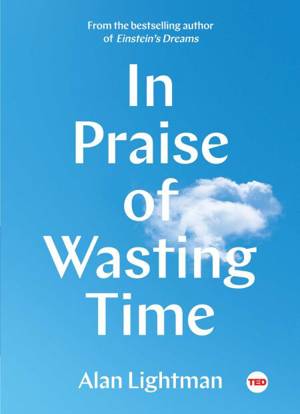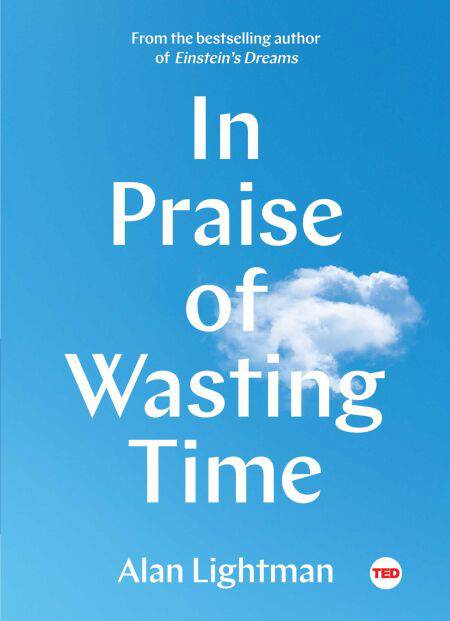
- Retrait gratuit dans votre magasin Club
- 7.000.000 titres dans notre catalogue
- Payer en toute sécurité
- Toujours un magasin près de chez vous
- Retrait gratuit dans votre magasin Club
- 7.000.0000 titres dans notre catalogue
- Payer en toute sécurité
- Toujours un magasin près de chez vous
12,29 €
+ 12 points
Format
Description
In this timely and essential book that offers a fresh take on the qualms of modern day life, Professor Alan Lightman investigates the creativity born from allowing our minds to freely roam, without attempting to accomplish anything and without any assigned tasks.
We are all worried about wasting time. Especially in the West, we have created a frenzied lifestyle in which the twenty-four hours of each day are carved up, dissected, and reduced down to ten minute units of efficiency. We take our iPhones and laptops with us on vacation. We check email at restaurants or our brokerage accounts while walking in the park. When the school day ends, our children are overloaded with “extras.” Our university curricula are so crammed our young people don’t have time to reflect on the material they are supposed to be learning. Yet in the face of our time-driven existence, a great deal of evidence suggests there is great value in “wasting time,” of letting the mind lie fallow for some periods, of letting minutes and even hours go by without scheduled activities or intended tasks.
Gustav Mahler routinely took three or four-hour walks after lunch, stopping to jot down ideas in his notebook. Carl Jung did his most creative thinking and writing when he visited his country house. In his 1949 autobiography, Albert Einstein described how his thinking involved letting his mind roam over many possibilities and making connections between concepts that were previously unconnected. With In Praise of Wasting Time, Professor Alan Lightman documents the rush and heave of the modern world, suggests the technological and cultural origins of our time-driven lives, and examines the many values of “wasting time”—for replenishing the mind, for creative thought, and for finding and solidifying the inner self. Break free from the idea that we must not waste a single second, and discover how sometimes the best thing to do is to do nothing at all.
We are all worried about wasting time. Especially in the West, we have created a frenzied lifestyle in which the twenty-four hours of each day are carved up, dissected, and reduced down to ten minute units of efficiency. We take our iPhones and laptops with us on vacation. We check email at restaurants or our brokerage accounts while walking in the park. When the school day ends, our children are overloaded with “extras.” Our university curricula are so crammed our young people don’t have time to reflect on the material they are supposed to be learning. Yet in the face of our time-driven existence, a great deal of evidence suggests there is great value in “wasting time,” of letting the mind lie fallow for some periods, of letting minutes and even hours go by without scheduled activities or intended tasks.
Gustav Mahler routinely took three or four-hour walks after lunch, stopping to jot down ideas in his notebook. Carl Jung did his most creative thinking and writing when he visited his country house. In his 1949 autobiography, Albert Einstein described how his thinking involved letting his mind roam over many possibilities and making connections between concepts that were previously unconnected. With In Praise of Wasting Time, Professor Alan Lightman documents the rush and heave of the modern world, suggests the technological and cultural origins of our time-driven lives, and examines the many values of “wasting time”—for replenishing the mind, for creative thought, and for finding and solidifying the inner self. Break free from the idea that we must not waste a single second, and discover how sometimes the best thing to do is to do nothing at all.
Spécifications
Parties prenantes
- Auteur(s) :
- Editeur:
Contenu
- Nombre de pages :
- 128
- Langue:
- Anglais
- Collection :
Caractéristiques
- EAN:
- 9781501154379
- Date de parution :
- 14-05-18
- Format:
- Ebook
- Protection digitale:
- Adobe DRM
- Format numérique:
- ePub

Les avis
Nous publions uniquement les avis qui respectent les conditions requises. Consultez nos conditions pour les avis.






